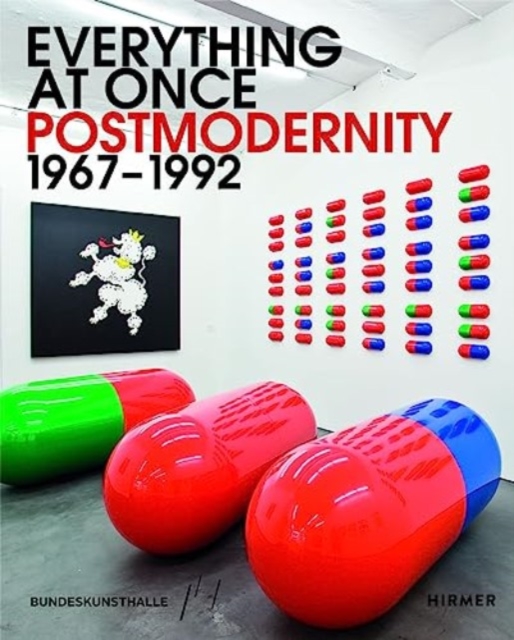
Everything at Once: Postmodernity 1967 - 1992 Paperback / softback
Edited by Bundeskunsthalle Bonn
Paperback / softback
Description
Holding up a mirror to the present, the exhibition homes in on our current conflicts – from right-wing populism to identity politics.
It allows us to ask, from the distance of a generation, what time we are actually living in.
Is Postmodernity really over – or are we in the middle of it? The year 1967 marked the beginning of our present: Modernism, which had presumed that everything could be sorted out through equal housing, furniture and rights for all, was abandoned, and from its ruins a bizarre, eccentric world was born.
Architects declared the amusement park the new ideal city; designers shook off the yoke of good taste, and the conflict between the two dominant political systems gave way to the struggle for self-realisation.
New media synchronised the globe, and images became the arena in which contests for style and recognition were waged.
Showcasing spectacular examples of design, architecture, cinema, pop, philosophy, art and literature, the exhibition chronicles the dawn of the information society, the unleashing of the financial markets, the great age of subcultures, disco, punk and techno-pop, shoulder pads and Memphis furniture.
It also chronicles the sudden surge in the construction of museums, the new temples of art and culture, to which we owe the largest exhibit, the Bundeskunsthalle itself.
When the Bundeskunsthalle opened in 1992, the Cold War was over, and Francis Fukuyama published his famous book, in which he proclaimed ‘the end of history’ as such.
Thirty years later, it is clear that history did not come to an end, and Postmodernism is once again a matter of considerable debate.
Information
-
Less than 10 available - usually despatched within 24 hours
- Format:Paperback / softback
- Pages:288 pages, 350 Illustrations, color
- Publisher:Hirmer Verlag
- Publication Date:15/02/2024
- Category:
- ISBN:9783777442761
£48.00
£33.35
Information
-
Less than 10 available - usually despatched within 24 hours
- Format:Paperback / softback
- Pages:288 pages, 350 Illustrations, color
- Publisher:Hirmer Verlag
- Publication Date:15/02/2024
- Category:
- ISBN:9783777442761






